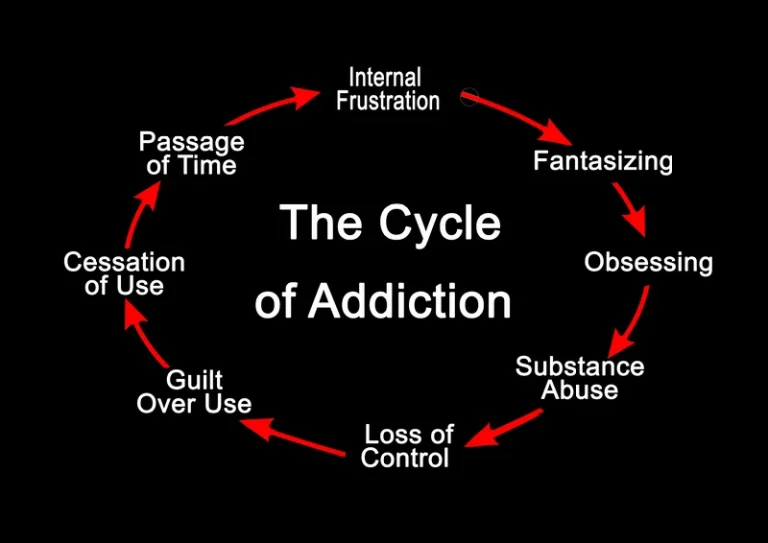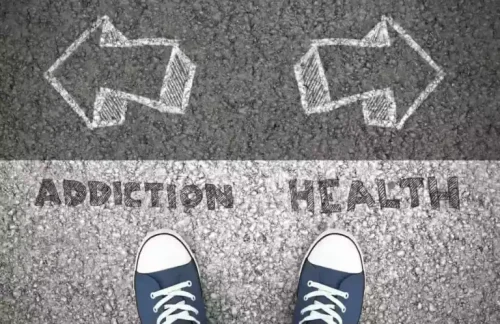
You’re suffering from anxiety, depression, and you can’t sleep unless you have a drink before bed. Your friends don’t talk to you anymore because you ran them all off after they confronted you about your drinking habits. You frequently isolate yourself and spend a lot of your time alone, drinking. In this stage, you’re gradually becoming more accustomed to drinking larger amounts of alcohol with little to no effect. You can still function well enough, despite your heavy drinking, and you become more and more focused on getting that next drink. One of the primary early warning signs of alcoholism is using alcohol to cope with life stressors like financial problems, relationship issues, daily stress, sadness, or other negative emotions.

Rehab Programs
- The feeling of powerlessness is stifling as you watch someone you care about slowly deteriorate physically and mentally while they may even continue to refuse to admit their drinking is problematic.
- You can immediately contact one of their 24/7 helplines for alcohol addiction and receive first-hand information from their caring and devoted operators.
- There’s a proven genetic component to alcohol addiction that makes it more likely to occur and harder to beat.
This disease can mimic congestive heart failure, and so be difficult to diagnose. If you have at least 2 of these symptoms, or others listed in the DSM-5, you may have alcohol addiction. And if you’ve had them for many years, you may be approaching late-stage alcoholism. If you’re facing serious health problems because of your drinking, you probably need medical attention.
How Many Drinks a Day is Considered an Alcoholic?
After many years of alcohol abuse, your addiction can take a toll on your relationships. Treatment might help you reconnect with loved ones or get to know new people. For many of these conditions, doctors recommend permanent sobriety. Timothy Morgan, MD, explains that “Cessation of alcohol is necessary18 to treat alcoholic liver disease.” And even with total abstinence, you might experience some chronic symptoms. Before you leave rehab, talk to your care team and make a plan for your ongoing treatment.
Late-Stage Alcoholism
Cravings and withdrawal symptoms, such as anxiety and nausea, might surface when not drinking. Responsibilities at work, school, or with family can suffer, accompanied by guilt and shame. This is one of the early stages where a person drinks alcohol for various reasons, such as to cope with stress, relax, socialize, or have fun. They might not drink daily, but they may drink more than they intend to or more than the recommended limits.

Rehab Resources

Alcohol use disorder, or AUD, is one of the most common mental health issues1 in the U.S. Before you can develop late-stage alcoholism, you’ll show much earlier signs of AUD. An end-stage alcoholic will experience life-threatening withdrawal symptoms when they stop drinking. This is why detoxing should be done with a medical professional’s supervision at an addiction treatment five stages of drinking center. By the time a person reaches end-stage alcoholism, drinking has taken over their lives and has likely had a negative impact on relationships, work or school, finances, and overall health. If a person tries to quit drinking on their own during end-stage alcoholism, they may experience severe symptoms of withdrawal, including tremors and hallucinations.
- Yes, effective treatment options for early-stage alcoholism include behavioral therapies and support groups.
- At this point, life outside of alcohol feels empty and you’ve lost all interest in the things you previously enjoyed doing.
- Work performance usually suffers at this stage, and impairment in the workplace is common.
- This also comes with a host of symptoms unique to the alcoholic in the late stage of alcoholism.
- Frequent, uncontrolled alcohol abuse eventually leads to problem drinking.
For example, if you’re unable to eat, you might receive nutrients through an IV. Repeatedly recognized as Newsweek’s best treatment center in California, they offer highly personalized, non-12-Step care using evidence-based and holistic approaches. A luxury treatment center combining traditional therapy with holistic activities to treat addiction and co-occurring disorders in a safe, tranquil environment.
End-Stage Alcoholism: Symptoms, Side Effects, and Recovery

Immune system decline invites serious illnesses, while organ damage from alcohol is often irreversible, leading to alcoholic liver disease, pancreatitis, and more. If you or someone you know is in end-stage alcoholism, it is not too late to get treatment. Call an addiction specialist such as SAMHSA today to get advice and support with seeking treatment for alcohol addiction. Alternatively, visit our rehab directory to get help near you today. As a person with a high tolerance continues to drink heavily, their body adapts to the presence of alcohol. After ongoing heavy use, the body may develop a physical dependence.
- Malnutrition impacts your body in many ways, affecting every system and suppressing your body’s ability to fight infection or heal itself.
- Various treatment options are available, even for the last stages of alcoholism.
- On average, end-stage alcoholics have their lives shortened by 30 years due to the diseases that are directly linked to their drinking.
- At this stage, the alcoholic may appear to be functioning normally and is unlikely to have performance problems at work, school or in other settings.
